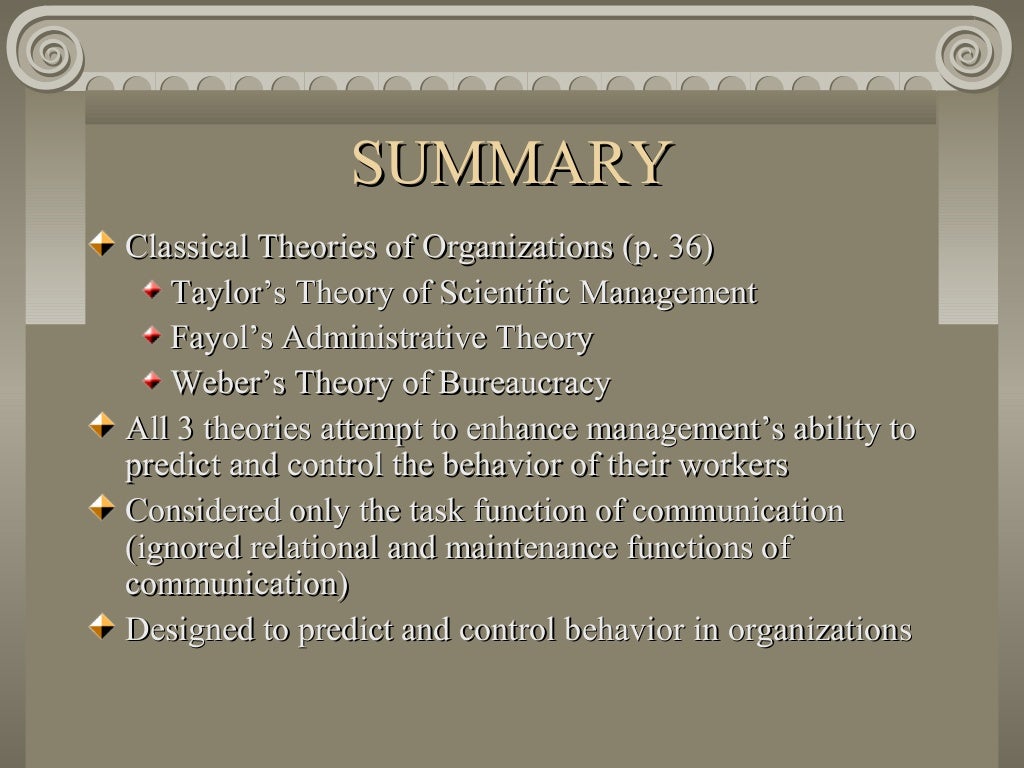
This creates an assembly-line environment that many workers feel hinders the workplace creativity. Many feel as if this approach places workers on the same levels as machines. It helps employees to feel appreciated when they are rewarded for hard work and, in return, they will continue to be productive.ĭisadvantages of the Classical Management ApproachĪs with any business structures, there are many flaws in the classical management approach. It also helps keep employees motivated by giving them a goal to work toward and a reward to look forward to. This is beneficial as it gives management easier control of the workforce.

The classic management approach often offers employees monetary rewards for jobs well done. Increased productivity and cost efficiency is a direct result of this practice. This also ensures that workers have clear expectations and responsibility. This creates higher output and efficiency. Generally, the same workers do the same task so they learn to do it very well. This approach sees projects that are broken into smaller tasks and are easier to complete. The supervisors provide training for employees as well as address employee issues that arise.Īnother advantage of the classical management approach is that it provides clear divisions of labor. The bottom level is the supervisors who oversee the day-to-day operation and activities of the workers. The middle management oversees supervisors and sets departmental goals according to an approved budget from the top level. The second level is the middle management. This level is generally responsible for making the long-term goals of the organization. The top level of the hierarchy is the board of directors and the chief executives. Once such advantage is the placement of an organizational hierarchy that is made up of three levels. However, if it is implemented in the right type of environment, there can be many advantages to the theory. The classical management approach does not work in all business environments. The approach also places an emphasis on higher quality, cost reduction and better management and worker relationships. The approach generally focuses on specialization and efficiency.


Introduced in the late 19th century, the classical management approach to business addresses many issues in industrial management.


 0 kommentar(er)
0 kommentar(er)
